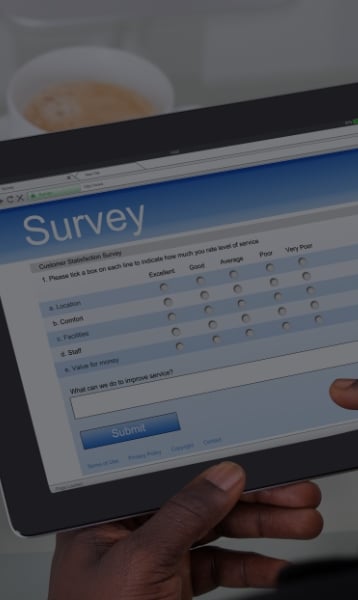The benchmarking portal gives you access to all reports available for STD, LTD, FML & WC.
Supporting LGBTQIA+ Employees in the Workplace


Sera-Leigh Ghouralal
As of 2021, there were over 8 million workers who identified as lesbian, gay, bisexual, transgender, queer/questioning, or gender non-binary (LGBTQIA+) in the United States. According to survey research done in 2021, 45.5% of LGBTQIA+ workers reported experiencing discrimination in the workplace. Only 21 states and D.C. have laws protecting against workplace bias based on sexual orientation. This means that there are no legal protections against sexual orientation discrimination for nearly 52% of the LGBTQIA+ population in the United States.
In addition to discrimination and harassment faced in the workplace, the lack of specifically tailored and inclusive benefits makes it even more difficult for LGBTQIA+ employees. Most benefits plans and packages are built based on traditional family structures and are limited to basic health care needs.
Members of the LGBTQIA+ community continue to have worsening health outcomes because of systemic inequalities in the healthcare they can access.
- LGBTQIA+ persons have statistically higher rates of obesity, with lesbian and bisexual women having twice the likelihood of being overweight or obese compared to heterosexual women.
- Lesbian women are less likely to be advised by healthcare providers to do screenings for breast cancer and partake in preventative care such as pap tests or HPV vaccinations.
- Rates of sexually transmitted infections,[1] such as HIV and syphilis, are higher among LGBTQIA+ adults.
- Statistics indicate that the substance use rate is more prevalent for LGBTQIA+ adults. 37.6% of LGBTQIA+ adults reported marijuana use compared to 16.2% of heterosexual adults. Additionally, LGBTQIA+ adults (9%) having nearly three times the rates of opioid use compared to heterosexual adults (3.8%)
- Mental health conditions, such as anxiety and depression, are more common among LGBTQIA+ youths and adults. Up to 60% of LGBTQIA+ adults are living with anxiety and/or depression, at rates 1.5 to 2.5 times higher than heterosexual adults.
Designing and implementing benefits that are LGBTQIA+ inclusive can support the health and well-being of your LGBTQIA+ employees and close some of the gaps they experience in healthcare, while attracting and retaining talent.
- Ensure your healthcare plan includes specific coverage for LGBTQIA+ needs, for example gender affirmation care (such as hormonal treatments or surgeries).
- Include mental health coverage in benefit plans; LGBTQIA+ persons have higher rates of mental health disorders, including suicidal ideation, because of discrimination, bullying, and lack of acceptance. Many times, they are unable to seek help for these conditions for many reasons, including fear or facing bias.
- Ensure that your coverage includes in-network providers who are LGBTQIA+ inclusive. LGBTQIA+ persons are often faced with health care providers who are disrespectful, discriminatory, or who do not understand their specific needs.
- Engage with LGBTQIA+ employees to understand their specific needs, so that employers can work with vendors to include benefits or coverage that are practical and useful.
- Have domestic partner and/or inclusive family benefits, so that partners and families of LGBTQIA+ employees can have access to healthcare coverage.
- Offer family planning (e.g., reproductive technology, adoption) and parental leave benefits for LGBTQIA+ employees.
The best way to know and understand how to support the health and well-being of your LGBTQIA+ employees is to listen to what they have to say. Create focus groups, gather their feedback, implement ideas, or benefits that LGBTQIA+ suggest, and check back to understand if these implementations are working. Ensuring that the voices of LGBTQIA+ are included in benefit plan designs will lead to greater inclusion practices, and overall satisfaction of your employees. These strategies can improve attraction efforts, improve retention, and increase productivity, while safeguarding the health, well-being, and happiness of your greatest resource – your employees.
- February 2025 (1)
- December 2024 (2)
- March 2024 (1)
- January 2024 (1)
- October 2023 (3)
- September 2023 (1)
- July 2023 (1)
- May 2023 (1)
- April 2023 (1)
- February 2023 (1)
- January 2023 (1)
- December 2022 (1)
- November 2022 (1)
- October 2022 (1)
- September 2022 (1)
- August 2022 (2)
- July 2022 (1)
- June 2022 (3)
- May 2022 (2)
- April 2022 (1)
- March 2022 (2)
- February 2022 (1)
- January 2022 (1)
- December 2021 (1)
- November 2021 (1)
- October 2021 (1)
- August 2021 (1)
- July 2021 (2)
- June 2021 (1)
- May 2021 (1)
- April 2021 (1)
- February 2021 (1)
- January 2021 (3)
- August 2020 (1)
- July 2020 (3)
- May 2020 (1)
- April 2020 (4)
- March 2020 (4)
- February 2020 (1)
- January 2020 (1)
- November 2019 (2)
- July 2019 (4)
- June 2019 (3)
- May 2019 (2)
- April 2019 (2)
- March 2019 (3)
- February 2019 (7)
- January 2019 (9)
- November 2018 (6)
- October 2018 (3)
- September 2018 (3)
- August 2018 (2)
- July 2018 (4)
- March 2018 (22)
- February 2018 (1)
- October 2017 (1)
- September 2017 (1)
- August 2017 (1)
- July 2017 (1)
- June 2017 (3)
- May 2017 (2)
- April 2017 (1)
- March 2017 (29)
- February 2017 (1)
- January 2017 (1)
- December 2016 (3)
- November 2016 (2)
- October 2016 (1)
- August 2016 (3)
- May 2016 (2)
- April 2016 (8)
- February 2016 (29)
- January 2016 (1)
- December 2015 (2)
- July 2015 (4)
- June 2015 (6)
- May 2015 (1)
- April 2015 (1)
- March 2015 (22)
- February 2015 (1)
- January 2015 (1)
- December 2014 (1)
- November 2014 (1)
- October 2014 (2)
- September 2014 (1)
- August 2014 (3)
- July 2014 (2)
- June 2014 (1)
- May 2014 (2)
- April 2014 (4)
- March 2014 (8)
- February 2014 (1)
- January 2014 (1)
- December 2013 (2)
- November 2013 (2)
- October 2013 (4)
- August 2013 (1)
- July 2013 (3)
- May 2013 (13)
- March 2013 (2)
- February 2013 (9)
- January 2013 (1)
- December 2012 (1)
- November 2012 (1)
- June 2012 (1)
- May 2012 (1)
- April 2012 (1)
- August 2011 (1)
- June 2011 (3)
- May 2011 (1)
- April 2011 (2)
- March 2011 (1)
- February 2011 (2)
- November 2010 (1)
- October 2010 (1)
- June 2010 (1)
- March 2010 (1)
- January 2010 (2)
- October 2009 (1)
- July 2009 (1)
- May 2009 (2)
- March 2009 (1)
- January 2009 (1)
- November 2008 (1)
- October 2008 (2)
- September 2008 (1)
- August 2008 (1)
- June 2008 (1)
- May 2008 (1)
- April 2008 (2)
- March 2008 (1)
- February 2008 (1)
- January 2008 (2)
- December 2007 (1)
- November 2007 (1)
- October 2007 (1)
- September 2007 (1)
- August 2007 (1)
- July 2007 (1)
- June 2007 (1)
- May 2007 (2)
- March 2007 (1)
- February 2007 (1)
- January 2007 (1)
- August 2006 (1)
- June 2006 (1)
- March 2006 (1)
- May 2005 (1)
- July 2004 (1)
- 2019 (1)
- 2020 (1)
- Absence (2)
- Absence Management (4)
- Article (105)
- Behavioral Health (2)
- Benchmarking (9)
- Benefit Design (11)
- Benefits + Plan Design (26)
- Blog (72)
- Burnout (1)
- Business Performance (2)
- Business Value of Health (21)
- Cancer (3)
- Cardiovascular Disease (4)
- Care Management (1)
- Care Quality (1)
- Caregiving (3)
- Case Studies (7)
- Chronic Conditions (2)
- Communicating H&P to Business Leaders (1)
- Community Health (2)
- Comparative Effectiveness Research (1)
- Connecting HR to Operations (1)
- COVID-19 (13)
- Culture of Health (1)
- Culture of Health + Safety (29)
- Data (1)
- Data Driven Decision Making (1)
- Depression (5)
- Diabetes (5)
- Disability Leave (41)
- Disease Burden (1)
- Employer Perspectives (5)
- Engage Employees (45)
- Event Recap (2)
- Exchanges (4)
- Family + Parental Leave (8)
- FMLA (2)
- Headache (1)
- Health + Productivity Management (54)
- Health Inequities (1)
- Healthcare (2)
- Healthcare Costs (17)
- HPM Survey (3)
- IBI Agenda (2)
- IBI Presents (9)
- immunization (1)
- Industry Profile (1)
- Integrating Health Data (12)
- Invest In Health (52)
- Leave Benchmark Survey (1)
- Linking Health to Business Performance (1)
- Make The Business Case (54)
- Manage Absence (70)
- Market Perspectives (29)
- Maternity (1)
- Measurement (2)
- Measuring Outcomes (21)
- Medication Adherence (1)
- Mental + Emotional Health (16)
- Mental Health (7)
- Migraine (2)
- MSD (1)
- MSK (1)
- Multi-Study Spotlight (23)
- Musc (1)
- Musculoskeletal Disorders (12)
- National Forum (1)
- Obesity (2)
- Occupation (1)
- Online Events (17)
- Pain Management (1)
- Patient Resources (1)
- Patient-Centered (2)
- Pharmacy (5)
- Physical Activity (1)
- Popular and Timely (11)
- Practical Guidance (6)
- Pregnancy (1)
- Presenteeism (1)
- Presenteeism / Job Performance (3)
- Preventive Care (1)
- Previous Forums (109)
- Productivity (46)
- Provider Quality (1)
- Regional Events (1)
- Research (22)
- Research Based Healthcare Evidence (1)
- Research Report (2)
- Research Review (3)
- Return to Work (19)
- Risk Management (11)
- SAW / RTW (1)
- Scholarly Work (2)
- Short-Term Disability (2)
- Sick Leave (15)
- Social Determinants of Health (1)
- Stay at Work (1)
- Stay-at-work / Return-to-work (1)
- STD (2)
- Strategies (1)
- Stress (2)
- Suicide (2)
- Surveys (3)
- Talking to Leadership (4)
- Telehealth (3)
- Understand Health Risks (34)
- Value-based Benefit Design (1)
- Vendor Integration (1)
- Video (3)
- virtual care (1)
- virtual health (1)
- Weight Control (5)
- Well-being (16)
- Wellness + Lifestyle (17)
- Working Remotely (4)
- Workplace Culture of Health (2)
- Workplace Health Programs (1)
- Admin
- Brian Gifford
- Brian Gifford Ph.D. Director, Research and Analytics, IBI
- Candace Nelson
- Carole Bonner
- Carolyn Ho
- Carolyn Ho, IBI Communications Lead
- Erin Peterson
- Erin Peterson, Researcher
- Gia Harris
- IBI
- IBI Member
- IBI Research Team
- Integrated Benefits Institute
- Jennifer Santisi
- Jim Huffman
- Kelly McDevitt, IBI President
- Marshall Riddle
- Nicole Nicksic, PhD, MPH Research Lead
- Sera-Leigh Ghouralal
- Thomas Parry, PhD Senior Advisor, Integrated Benefits Institute


























.png?width=900&name=Copy%20of%202024%20Research%20Priorities%20Banner(5).png)

